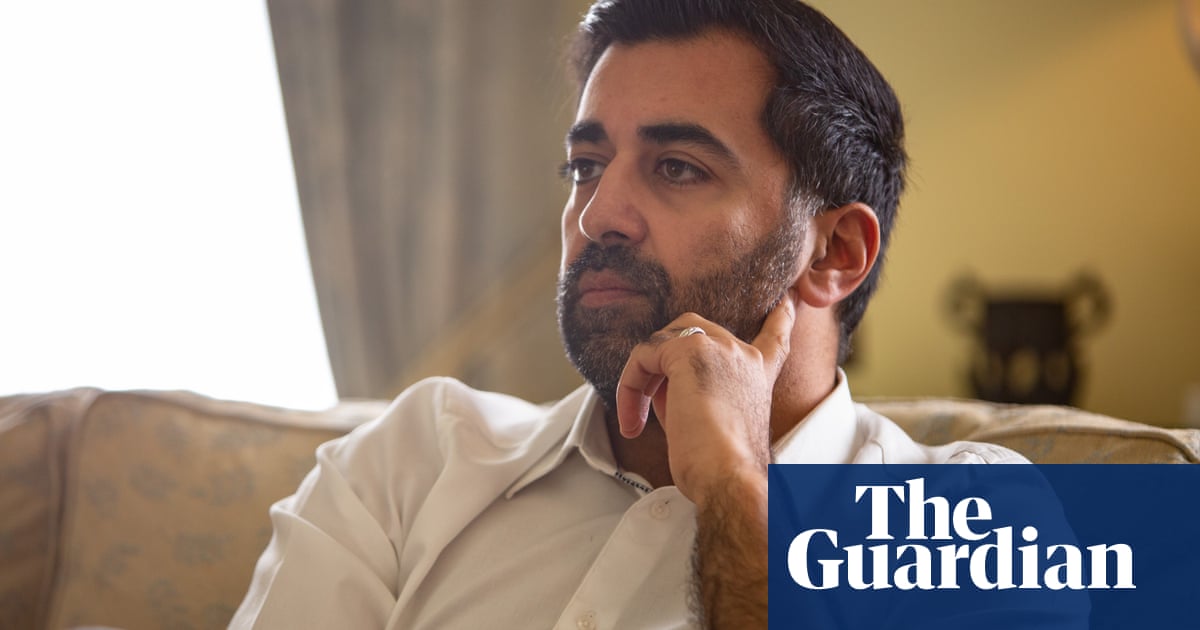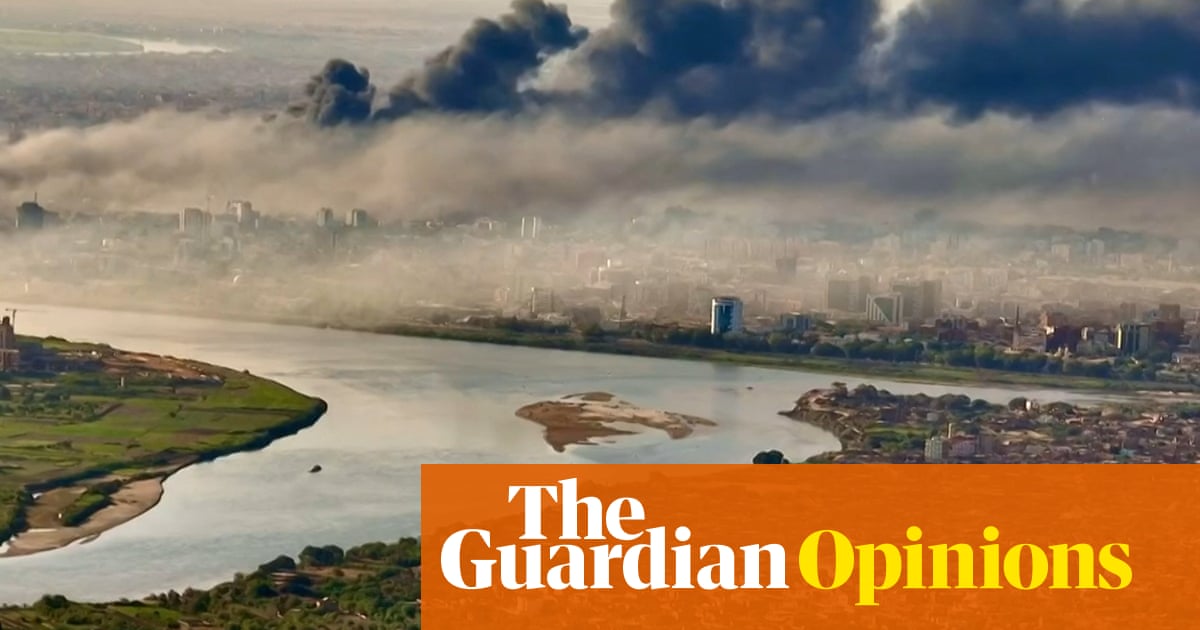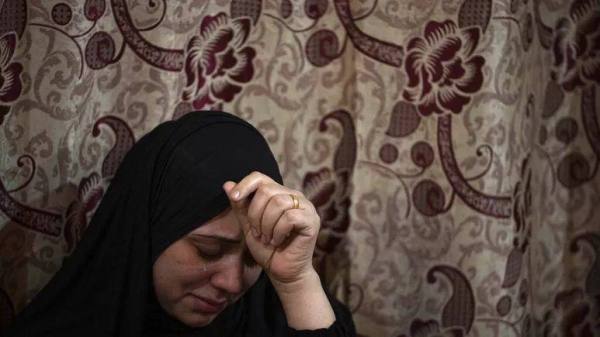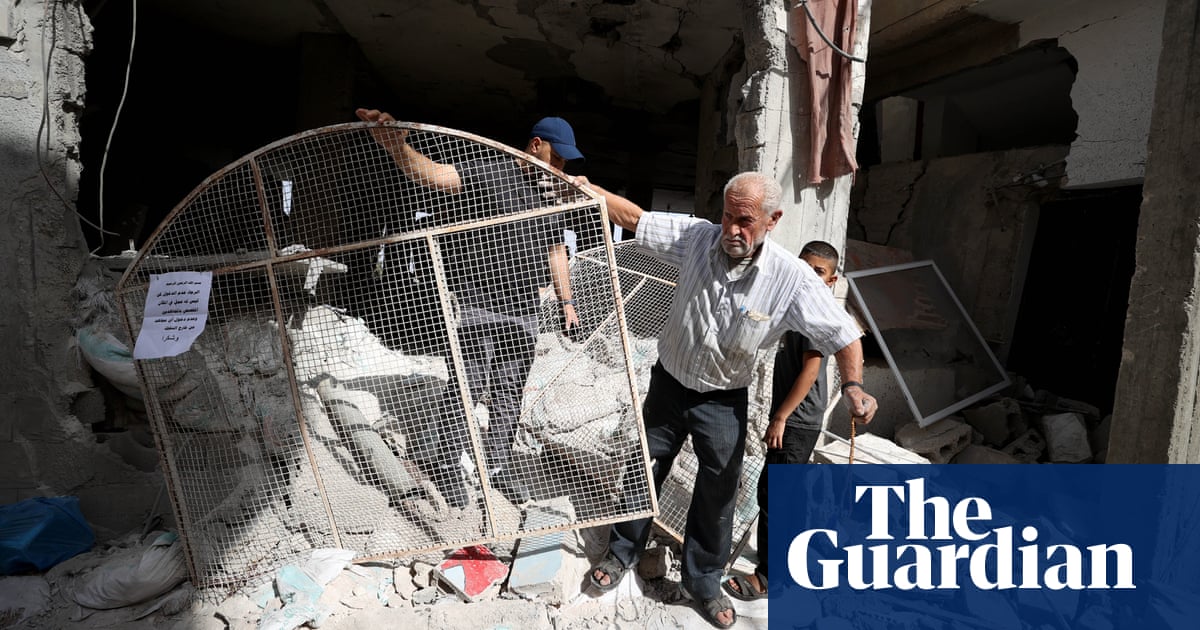
For Mahmoud Abu Amir, the war in his native Gaza began on Monday 9 October. An Israeli airstrike flattened a large area in the Jabalia refugee camp where he spent most of his life, demolishing the apartment block that was sheltering most of his family, including his wife, Mayar, and their two young children.
Two days earlier, Hamas militants had stormed towns and kibbutzim near the Gaza Strip, killing 1,400 Israelis and taking at least 200 more hostage. When Abu Amir called his family that day to check on them, “it was a shock”, he said. “No one expected this to happen. But my wife, and my entire family were dead scared. They knew something would happen to them. They live near the border and they knew they would pay the price.”
Abu Amir received news of the airstrike on 9 October while tending to the horses at a stable in northern Israel. He dropped to his knees, letting go of the horse he was holding. He sat on the ground and immediately began trying to call every member of his family back home. “I called my mother, my wife, everyone in the entire family, and there was no answer,” he said.
In the days and weeks since, his daily video calls with his wife and children became voice calls due to the weak internet access in the territory, then frantic text messages. Now there is nothing at all. The thread of their communications frayed as the telecoms networks that cover Gaza dwindled to a minimum, amid fierce Israeli bombardments that have reportedly killed more than 7,700 people.
The 32-year-old no longer knows if his wife and two children have survived. He knows that they fled to Khan Younis at the southern end of the strip the week after the strike on their building, but since then communication has been almost impossible. On 9 October there were also Israeli strikes on offices and infrastructure for Gaza’s main telephone companies, Jawwal and Paltel.
On Friday, Jawwal announced “a complete cessation of all communications and internet services within the Gaza Strip in light of the ongoing aggression”. The internet monitoring organisation NetBlocks said internet services in the territory showed a “collapse in connectivity”.
“I don’t know if they are alive or dead, under the rubble calling for help, or dead. I have no information at all,” said Abu Amir.
“Between last Thursday night until now I have no news of my wife and children. Until now, every time I try to call, all I hear is a message saying the number I’ve called is out of service. Israel cut the connection with Gaza; now I am having a nervous breakdown. The rest of my family is in northern Gaza, where the bombing is.”
Abu Amir followed news of the assault on his home from 50 miles away in the West Bank city of Ramallah, a short distance separated by a web of border crossings, checkpoints and barriers that he has been unable to cross for five years. He has never met his young son, who was born a week after he left for medical treatment in Jerusalem five years ago.
Now he is among the thousands of other workers and people from Gaza who sought medical treatment in Jerusalem or the West Bank who have been trapped there since the 7 October, unable to return and frantic as they try to check on their families. Some of the 17,000 who obtained work permits for Israel have remained, sheltering outside a sports hall in Ramallah. Elsewhere, others like Abu Amir can only watch as the place they grew up, home to 2.3 million people, is destroyed.
It took rescue workers four hours to save his children from underneath the destroyed remains of their apartment in the early October airstrike. When Abu Amir called his mother, he heard only screaming down the phone line. After hours of searching, including calling every local hospital, his daughter was found trapped under a sofa that had wedged itself between the floor and the wall, protecting her from the falling debris. The family fled south, hoping for safety.
“The difference between Gaza and life here in Ramallah is the difference between the earth and the sky,” said Abu Amir, conflicted that he is safe from the bombardments while unable to save his family.
He tried frantically calling the Red Cross or other aid organisations that might be able to locate his wife and children, without success. He knew they were sleeping outside a school run by the UN in the southern city of Khan Younis, but there were reports of a bombing nearby and they were already without food or water.
“Until now, there’s been no connection to the networks – I can’t reach them,” he said. “I am terrified.”












